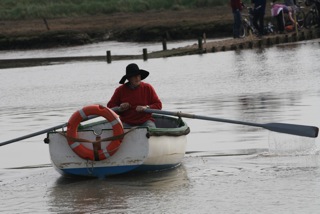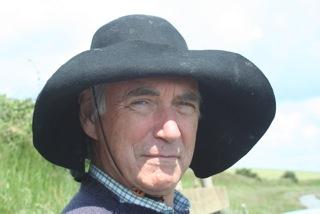
Historical facts about the Butley Ferry
The Butley Ferry started as far as we know in the 16th Century making it one of the oldest ferries in Great Britain. Tudor England was at its height and it is not hard to imagine Henry V111’s Cardinal Wolsey, born in Ipswich, exploring the ‘sandlings’ as this part of coastal Suffolk has long been known. Perhaps Wolsey’s father, a local butcher, may have come across the ferry when buying cattle or pigs in the area. Of course in those pre industrial revolution days 85% of the population lived on the land and the estates and small holdings would have provided employment for 100s of agricultural workers. Those looking for work and with produce to sell in the thriving and much larger village of Orford would have used the ferry to cross the Butley river and save themselves a 5 mile extra trudge.
In the years from then to the end of the 19th century, the ferry would have worked at least a 6 day week and was rowed by local people for probably not more than a farthing (a quarter of an old penny of which there were 240 in the pound). The ferrymen of the time would have worn the broad brimmed farm workers hat just like that worn by The Alde & Ore’s volunteer ferrymen today.
In the 20th Century the invention of the bicycle and the motor car enabled new users to emerge – the rambler, the cyclist and bird watcher plus of course the weekender who had been able to visit Suffolk from London Liverpool St since the building of the East Suffolk line in 1859.
It took time for the ferry to adjust to becoming a service for local people at the weekend and visitors to the area, particularly those from the Netherlands and Germany arriving at Harwich. Thanks to the Alde & Ore and the preparedness of volunteer oarsmen it now provides a memorable experience on summer weekends and bank holidays. While the ferry carried over 1,000 people in the summer of 2011 and around 500 bikes there is no way the service could run without our unpaid ferrymen being happy to continue to row across the river and being proud to continue this ancient service for a much more diverse community than those of over 400 years ago.

